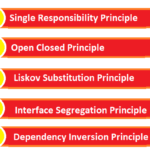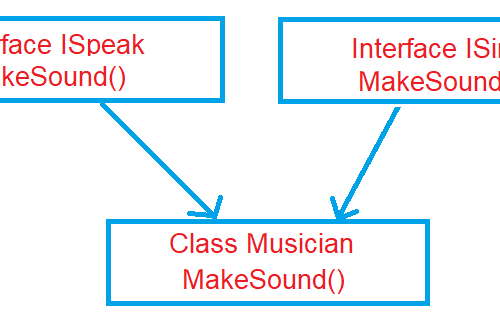Mastering C# : The Dynamic Difference Between Boxing and Unboxing in c# (with Example)
Introduction
In the world of programming, specifically in the context of C#, boxing and unboxing are two important concepts to understand. These concepts are often used when working with value types and reference types in C#. This article aims to provide a clear difference between boxing and unboxing in c#, their purposes, and their implications in C# programming. By the end of this article, you will have a solid understanding of the differences between boxing and unboxing, and how they impact your code.
Table of Contents
1. Understanding Value Types and Reference Types
Before diving into boxing and unboxing, it’s important to have a clear understanding of value types and reference types in C#. Value types hold the actual data, while reference types store references to the data. Examples of value types include integers, characters, and booleans, whereas examples of reference types include objects, strings, and arrays.
2. What is Boxing?
Boxing is the process of converting a value type to a reference type. When boxing occurs, the value type is wrapped within an object of the corresponding reference type. In other words, a box (object) is created to hold the value. This process allows value types to be treated as reference types, enabling them to be used in scenarios that require reference types.
3. Why is Boxing Necessary?
Boxing is necessary when you need to store value types in a location that expects a reference type. For example, if you want to add an integer value to a collection that only accepts objects, boxing is required to convert the integer into an object. Without boxing, you wouldn’t be able to use value types in scenarios that specifically require reference types.
4. How Boxing Works
When a value type is boxed, a new object is allocated on the heap to contain the value. The value is then copied into the allocated object. This process incurs a performance overhead because of the memory allocation and copying involved.
5. What is Unboxing?
Unboxing is the process of extracting a value type from a reference type. It is the reverse of boxing. When unboxing occurs, the value stored within the object (box) is extracted and assigned to a value type variable. Unboxing allows you to retrieve the original value from a boxed object.
6. Why is Unboxing Necessary?
Unboxing is necessary when you want to retrieve the original value from a boxed object and use it as a value type. For instance, if you have a collection of objects that contain boxed integers, you need to unbox them to perform operations specific to integers.
7. How Unboxing Works
When unboxing a value type from an object, the runtime checks whether the object being unboxed is compatible with the target value type. If the types are compatible, the value is extracted from the object and assigned to the value type variable. However, if the types are not compatible, an InvalidCastException is thrown at runtime.
8. Performance Considerations
Boxing and unboxing operations have performance implications. Boxing involves memory allocation and copying, which can impact the overall performance of your code, especially in scenarios where frequent boxing and unboxing occur. It is important to be mindful of these performance considerations when using boxing and unboxing in performance-critical sections of your code.
9. When to Use Boxing and Unboxing
Boxing and unboxing should be used judiciously, and only when necessary. It is best to avoid unnecessary boxing and unboxing operations, as they can negatively impact performance. Use boxing and unboxing when you need to bridge the gap between value types and reference types or when interacting with APIs that require reference types.
10. Best Practices for Boxing and Unboxing
To minimize the impact of boxing and unboxing on performance, consider the following best practices:
- Use generic collections whenever possible, as they allow you to work with value types directly.
- Avoid unnecessary boxing and unboxing operations.
- Be aware of implicit boxing that may occur when using certain language features or APIs.
- Consider alternative approaches, such as using specialized libraries or implementing custom value types, to avoid the need for boxing and unboxing.
11. Examples of Boxing and Unboxing in C#
Example 1: Boxing
int number = 42;
object boxedNumber = number; // Boxing occurs here
Example 2: Unboxing
object boxedNumber = 42;
int number = (int)boxedNumber; // Unboxing occurs here
12. Boxing and Unboxing Pitfalls to Avoid
While boxing and unboxing can be useful, there are certain pitfalls to be aware of:
- Performance overhead: As mentioned earlier, excessive boxing and unboxing can impact performance.
- Type compatibility: Unboxing can result in runtime errors if the target type is not compatible with the boxed type.
- Nullability: Unboxing a null reference can lead to a NullReferenceException.
13. Boxing vs. Unboxing: Key Differences
The key differences between boxing and unboxing are as follows:
- Boxing converts a value type to a reference type, while unboxing extracts a value type from a reference type.
- Boxing involves allocating memory and copying the value, while unboxing extracts the value without memory allocation.
- Boxing allows value types to be treated as reference types, while unboxing retrieves the original value from a boxed object.
14. Pros and Cons of Boxing and Unboxing
Pros of Boxing:
- Enables value types to be used in scenarios that require reference types.
- Allows value types to be stored in collections that accept objects.
Cons of Boxing:
- Incurs a performance overhead due to memory allocation and copying.
- Can result in runtime errors if the boxed type and target type are not compatible.
Pros of Unboxing:
- Retrieves the original value from a boxed object.
- Allows value types to be used in operations specific to their type.
Cons of Unboxing:
- May lead to runtime errors if the boxed type and target type are not compatible.
- Unboxing a null reference can result in a NullReferenceException.
15. Conclusion
In conclusion, boxing and unboxing are important concepts in C# programming when working with value types and reference types. Boxing allows value types to be treated as reference types, while unboxing retrieves the original value from a boxed object. However, both operations come with performance considerations and should be used judiciously. Understanding the differences between boxing and unboxing is crucial to writing efficient and effective C# code.
FAQs (Frequently Asked Questions)
What is the main difference between boxing and unboxing in C#?
Boxing is the process of converting a value type to a reference type, while unboxing is the process of extracting a value type from a reference type.
When is boxing necessary in C#?
Boxing is necessary when you need to store a value type in a location that expects a reference type, such as adding a value type to a collection that only accepts objects.
Why is unboxing necessary in C#?
Unboxing is necessary when you want to retrieve the original value from a boxed object and use it as a value type, particularly when working with collections that contain boxed values.
What are the performance considerations when using boxing and unboxing in C#?
Boxing and unboxing operations involve memory allocation and copying, which can impact performance. It’s important to minimize unnecessary boxing and unboxing to maintain good performance.
Can boxing and unboxing lead to runtime errors?
Yes, improper usage of boxing and unboxing can lead to runtime errors. For example, unboxing a value to an incompatible target type can result in an InvalidCastException.
What is boxing in C#?
Boxing in C# is the process of converting a value type (such as int, char, double) to an object type (such as object, interface, or delegate) to be stored in a reference type variable.
What is unboxing in C#?
Unboxing in C# is the reverse process of boxing. It involves converting an object type back to its original value type when retrieving the value from a reference type variable.
What is the difference between boxing and unboxing in C#?
Boxing converts a value type to an object type, while unboxing converts an object type back to its original value type. Boxing involves placing a value type into a heap-allocated memory location, while unboxing extracts the value from the heap-allocated memory location back to the stack.
What are the advantages of boxing and unboxing in C#?
Boxing allows value types to be used in scenarios that expect object types, such as collection classes. Unboxing enables the retrieval of the original value from a boxed object, allowing seamless interchangeability between value and reference types.
What are the disadvantages of boxing and unboxing in C#?
Boxing and unboxing operations can impact performance because they involve memory allocations and conversions. Unnecessary boxing and unboxing can lead to memory overhead and reduced execution speed.
Can you provide an example of boxing in C#?
Sure! Boxing example in C#: int num = 42; object boxedNum = num; Here, the integer value 42 is boxed into an object type variable boxedNum.
Can you give a real-time example of boxing and unboxing in C#?
A real-time example of boxing and unboxing in C# can be when you store value types in collections like List<object>, where boxing occurs. When retrieving the values from the list, unboxing takes place to obtain the original value types.
How can I avoid boxing and unboxing in C# for performance optimization?
To avoid boxing and unboxing in C#, use generic collections like List<T> or Dictionary<TKey, TValue>, which work with specific value types without the need for boxing and unboxing.
What is the difference between boxing and casting in C#?
Boxing converts a value type to an object type, whereas casting involves converting a value from one data type to another, either implicitly or explicitly, without changing the underlying memory representation.
Can you explain the concept of boxing and unboxing with a practical program in C#?
Certainly! A practical program that demonstrates boxing and unboxing in C# could involve storing a collection of different value types (int, double, etc.) in a List<object> and then retrieving and unboxing them back to their original types for manipulation.
How do boxing and unboxing impact memory utilization in C#?
Boxing and unboxing involve memory allocations and conversions, which can lead to increased memory utilization and reduced performance compared to working directly with value types.
Is there a performance difference between boxing and casting in C#?
Yes, there is a performance difference between boxing and casting in C#. Boxing involves memory allocation and copying of data, making it less efficient compared to casting, which involves type conversion without additional memory overhead.
Can you explain the concept of boxing and unboxing in C# with interview questions?
In interviews, questions related to boxing and unboxing may focus on their definitions, differences, performance impact, and scenarios where they are useful or should be avoided for optimization.
Are there any best practices to be followed when dealing with boxing and unboxing in C#?
Best practices for dealing with boxing and unboxing in C# include using generics for type safety, minimizing unnecessary conversions, and being mindful of performance implications when working with value and reference types.
Related Post :
Code Refactoring in C#: Improving Code Quality and Maintainability
Deep Dive into C# Dictionary: Key-Value Pair Management Made Easy
- LINQ Join with Multiple Conditions in C# (.Net) 2024
- Exploring C# Record vs Class 2024
- Mediator pattern c# example 2024 (Mediator design pattern c#)
- Understanding of What is Middleware in C# (.Net Core) 2024
- Check out whats new features are coming in .Net 9
- Value Type and Reference Type in C# – A Guide to Value vs. Reference Types in C#
- Singleton Design Pattern in C# with Example A Step-by-Step Guide to Implementing the Singleton Design Pattern in C#
- Mastering the Factory Design Pattern in c# :Benefits of Using the Factory Design Pattern in C#
- Learning SOLID Principles C# with Examples : Best Practices, Applying SOLID principles in c# to write better C# code
- Master the Top Advanced C# Interview Questions and Answers 2024
- How Does 5g Technology Enhance the Internet of Things : Unleashing the Power of Things
- How to Activate 5g in Jio Unlimited Data: Exploring Jio 5G Options!
- How to Enable 5g Unlimited Data in Airtel, Supercharge Your Phone with Airtel’s 5G!
- How Can I Activate 5g Instead of Lte, Want Lightning Speed 5G ?
- How Do I Activate 5g on My Iphone 13, Activating 5G on Your iPhone 13
- How to Activate 5g Airtel Unlimited Data, Activating Airtel Unlimited 5G Data (Simple Guide)
- How to Activate 5g Home Internet Verizon, Power Up Your Home with Verizon 5G Home Internet: Activation Guide
- How to Activate 5g Network in 5g Mobile, Activating 5G on Your Phone
- How to Activate 5g Unlimited Data in Airtel Thanks App, Activating Airtel’s Unlimited 5G with the Thanks App!

















3 Comments
Pingback:
Pingback:
Pingback: